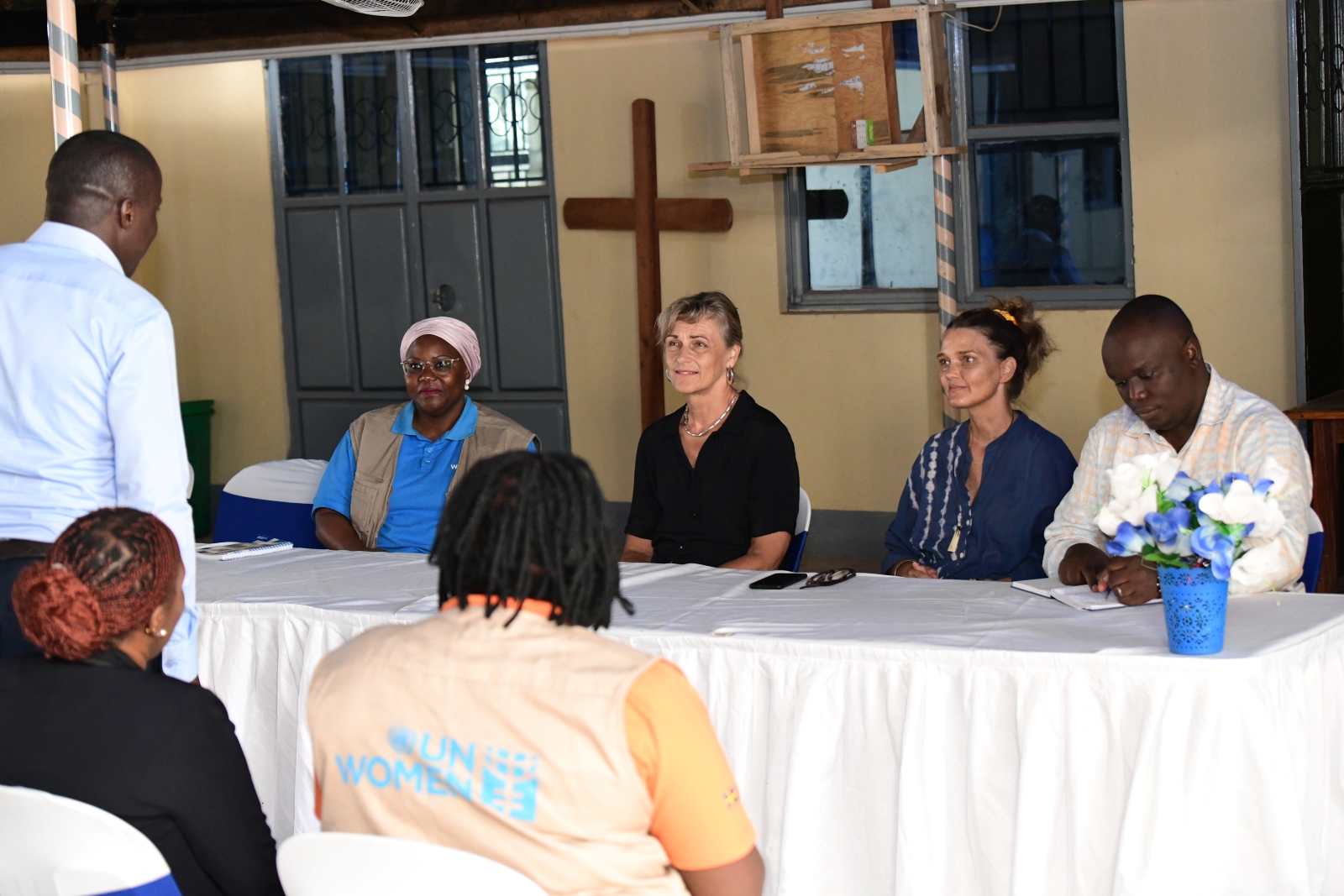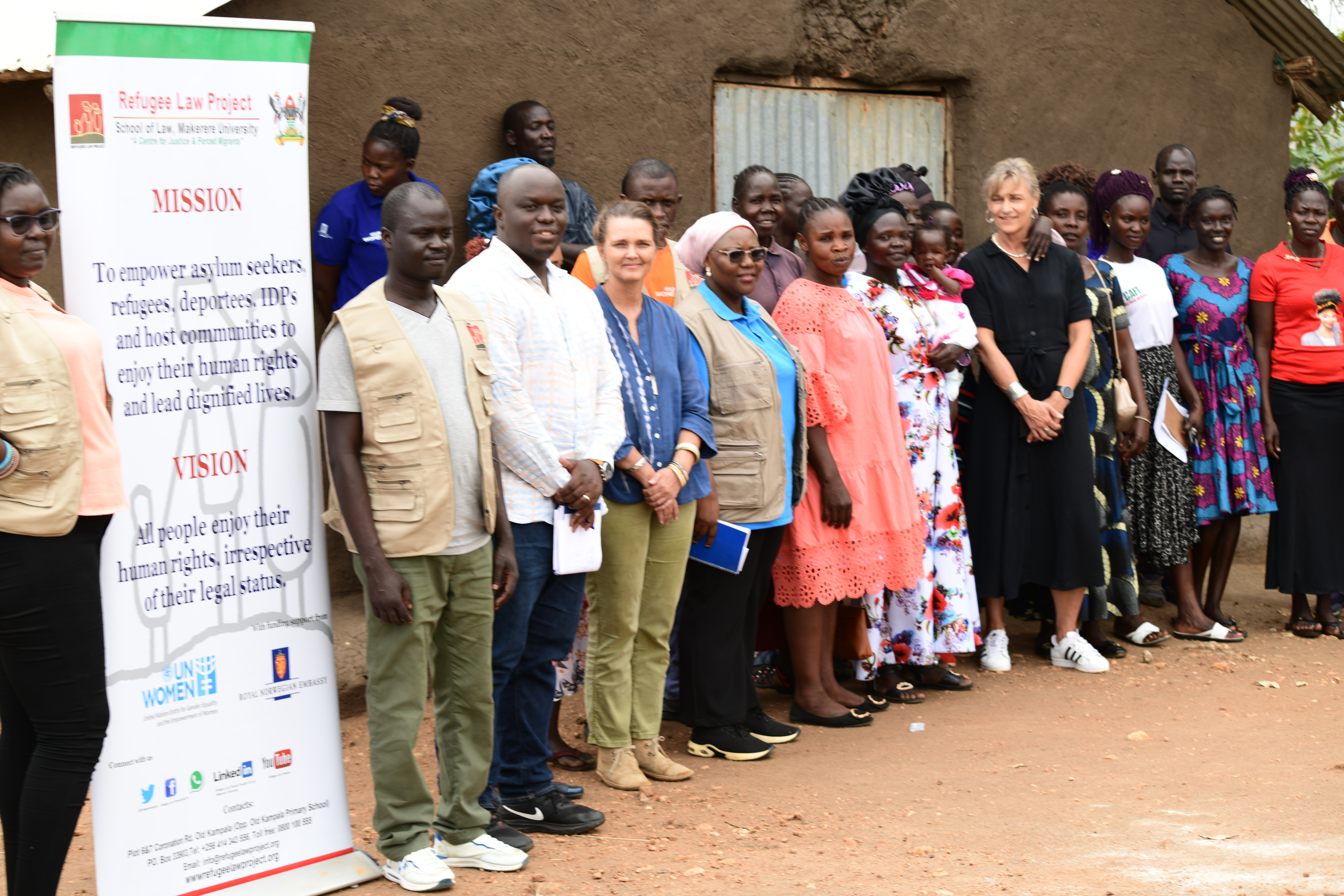Norwegian ambassador visits LEAP program beneficiaries in Yumbe district
Date:
On February 14, 2024, UN Women Uganda, in collaboration with the implementing partners of the UN Women's Leadership, Empowerment Access & Protection (LEAP) program, welcomed the Norwegian Ambassador to Uganda, Anne Kristin Hermansen, to Yumbe District. The purpose of her visit was to witness firsthand the positive impact of the project on refugee women and girls in the region.

During her visit, Ambassador Hermansen engaged with beneficiaries of the Second Chance Education initiative, a component of the LEAP program. These individuals have acquired diverse life skills in areas such as tailoring and garment construction, catering and hotel management, as well as motorcycle repairs and driving.
Furthermore, Hermansen had the opportunity to hear from participants in the English for Adults (EFA) and Leadership Programme. This initiative focuses on equipping individuals with English language proficiency, covering listening, speaking, reading, writing, and numeracy, following the "Speak Your Rights" curriculum.
A highlight of the visit included a meeting with the UNITY Savings and Farmers’ Group, along with the Community Activists and Leaders from the Bidibidi camp within the refugee community. This interaction provided valuable insights into the direct impact of the LEAP program on the lives of those it serves.
The LEAP program, implemented by the Refugee Law Project, Oxfam Uganda, and Uganda Network on Law Ethics and HIV/AIDS (UGANET), is supported by UN Women with funding from the Embassy of Norway in Uganda. The project, titled "Strengthening Women’s Leadership, Empowerment, and Resilience in Adjumani, Yumbe, Terego, and Kyegegwa," aims to ensure that women and girls affected by crises in both refugee and host communities actively lead, participate in, and benefit from humanitarian response and recovery efforts.

As part of the project, the Refugee Law Project has enrolled 72 learners in different learning centers (Ebeneezer Global Hub, Glory beauty salon, and God with us tailoring center) comprising of 27 women for tailoring and garment construction, 8 for catering and hotel management, 13 for salon and hairdressing, 22 for motorcycle repairs and driving. The skilling program was based on a needs assessment survey. Ambassador Hermansen expressed her appreciation for the ongoing work and encouraged the project stakeholders to further enhance the opportunities available. She said, "I appreciate your work and encourage you to further strengthen the opportunities around you. This project is still in infancy, and I will be glad to come back sometime to see further progress." This endorsement reflects the importance of sustained efforts to empower and uplift refugee women and girls in their pursuit of education and skill development within the LEAP program.
Since 2022, the LEAP program has benefitted 23,493 refugees through access to UN women supported humanitarian services. 17, 718 refugees from DRC received mental health and psychosocial support services as well as 128 gender skills strengthened.
The project has also enabled a 75% increase in access to protection services and improved the Gender Age Marker (GAM) score of the overall refugee response with the Uganda Country Refugee Response Plan (URRP) 2022 – 2025, scoring a GAM 3 compared to GAM 1 in 2020. 7 Women-Led Organizations were also supported to effectively deliver, monitor and implement humanitarian response Interventions.
Furthermore, 128 Humanitarian actors had strengthened capacity and skills in Gender in Humanitarian Action (GiHA), 500 Refugee Women and girls were supported to access skills development and education through Second Chance Education, 1399 refugees increased literacy and numeracy skills through English for Adults (EFA) program, 1,864 refugee and host community women engaged in 57 Village Savings and Lending Associations, 1,075 persons were trained and supported to engage in Climate Smart Agriculture.